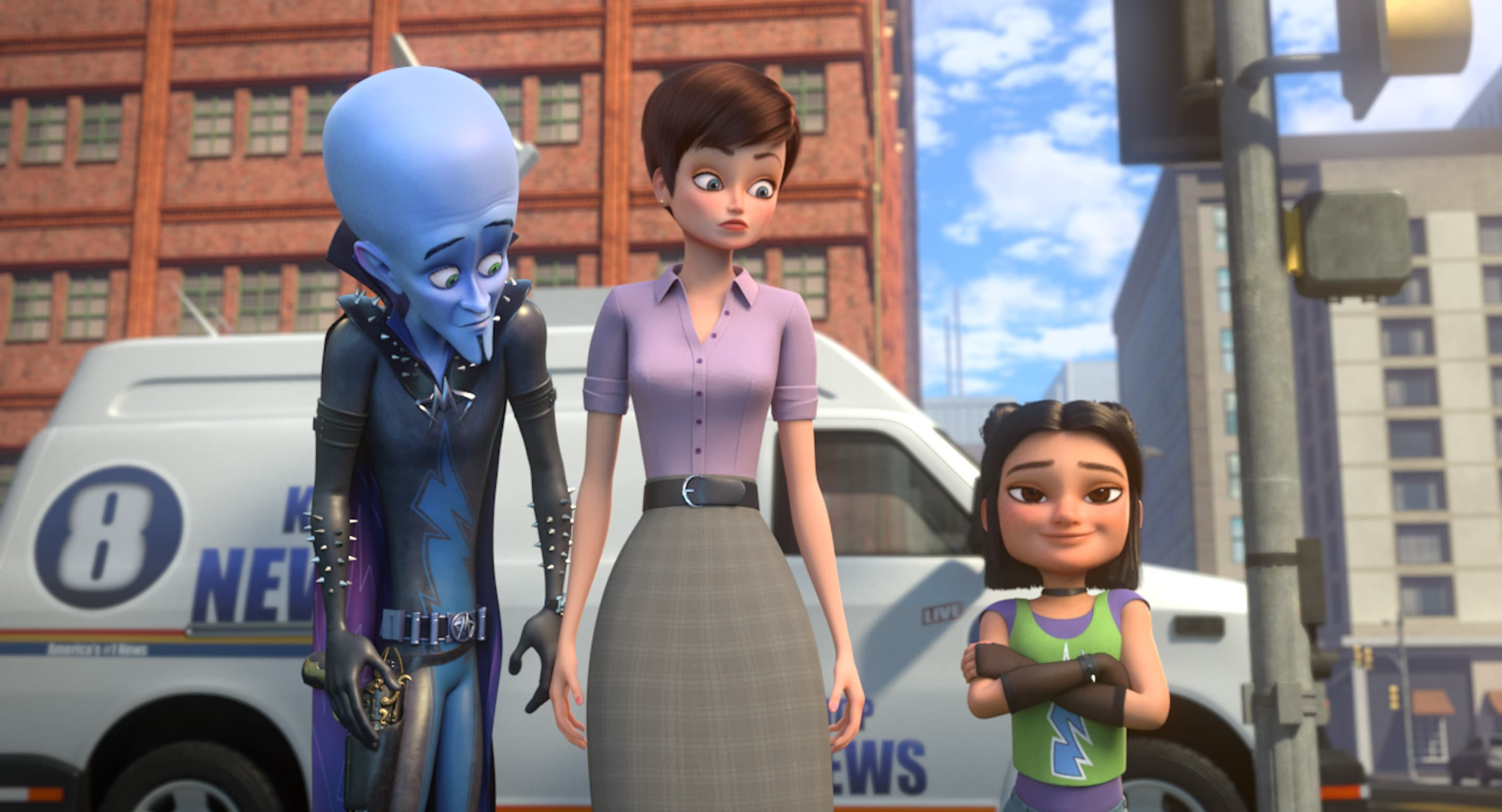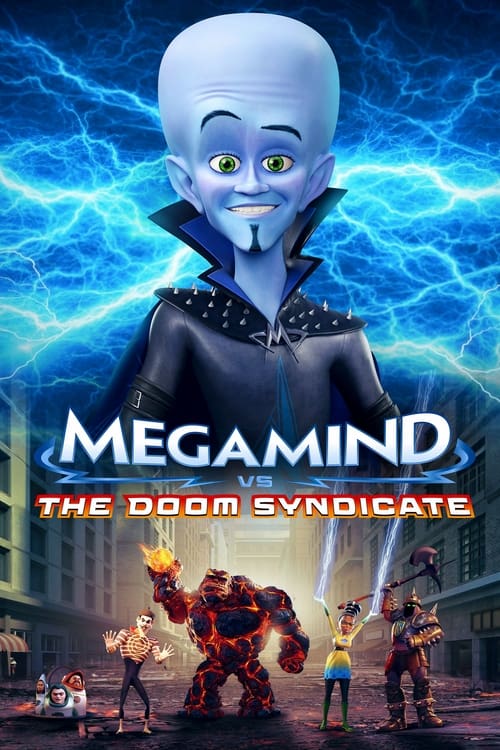Megamind vs. the Doom Syndicate – Film Review
Published March 3, 2024

In the world of animated superhero films, DreamWorks Animation has established itself as a formidable contender with movies that blend humor, heart, and heroics in equal measure. However, their latest outing, Megamind vs. the Doom Syndicate, a sequel to the 2010 film Megamind, struggles to capture the magic that made its predecessor a beloved classic. Despite the efforts of a talented voice cast and a promising premise, the film falls short in several key areas, making for a disappointing addition to the DreamWorks catalogue.
Directed by Eric Fogel, known for his work on Celebrity Deathmatch, and penned by Alan Schoolcraft and Brent Simons, the team behind the original Megamind screenplay, expectations were high for this sequel. The film follows Megamind (voiced by Keith Ferguson), the blue-skinned, large-craniumed former villain-turned-hero, as he assembles a team to stop his former evil teammates from executing a dastardly plan to launch Metro City to the moon. Alongside Megamind are returning characters such as Roxanne Ritchi (Laura Post) and newly renamed sidekick Ol’ Chum (Josh Brener), among others.
One of the primary issues with Megamind vs. the Doom Syndicate is the recasting of its central characters. While Keith Ferguson, Laura Post, and Josh Brener are undoubtedly talented voice actors, they fail to recapture the charm and chemistry of the original cast. Ferguson’s rendition of Megamind, while serviceable, lacks the nuance and vulnerability that Will Ferrell brought to the role. Similarly, Post’s Roxanne feels less dynamic than Tina Fey‘s original portrayal, making it difficult for audiences to invest in the central romance. The change from Minion to Ol’ Chum, with the flimsy excuse of a cease-and-desist, feels more like a cheap gag than a meaningful evolution of the character.
Furthermore, the film’s humor, one of the key elements that endeared the first Megamind to audiences, feels forced and lackluster in this sequel. The jokes often miss the mark, relying heavily on slapstick and predictable punchlines that fail to elicit genuine laughter. The introduction of the Doom Syndicate, while providing potential for intriguing new villains, ultimately results in a crowded narrative that leaves little room for character development. The Syndicate members come off as one-dimensional caricatures, lacking the depth and relatability that made characters like Hal/Tighten in the original film compelling antagonists.
The plot itself is another area where Megamind vs. the Doom Syndicate stumbles. The idea of Metro City facing the threat of being launched to the moon is undoubtedly ambitious, but the execution feels rushed and haphazard. Key plot points are glossed over or resolved too conveniently, robbing the story of tension and stakes. The film attempts to juggle multiple storylines, including Megamind’s struggles with heroism, the dynamics of his new team, and the schemes of the Doom Syndicate, but fails to give any of them the attention they deserve. This results in a narrative that feels disjointed and unsatisfying.
Visually, the film retains the vibrant and dynamic animation style of its predecessor, but even here, there’s a sense of missed opportunity. The action sequences, while technically impressive, lack the creativity and inventiveness that could have set them apart. The design of the new villains, despite the potential for visual flair, feels derivative and uninspired.
Perhaps the most disappointing aspect of Megamind vs. the Doom Syndicate is its failure to build on the themes and character growth established in the original film. The first Megamind explored the complexities of heroism and villainy, the search for identity, and the power of redemption in refreshing and nuanced ways. The sequel, in contrast, offers little in the way of thematic depth or character development. Megamind’s journey feels stagnant, and the attempts at moral lessons come off as heavy-handed and clichéd.
Megamind vs. the Doom Syndicate is a sequel that struggles to find its footing. Despite the best efforts of its voice cast and creative team, the film is let down by weak writing, underdeveloped characters, and a lack of originality. While it may serve as a passable diversion for younger audiences, fans of the original Megamind will likely find this installment a disappointing follow-up. DreamWorks has delivered many animated gems over the years, but unfortunately, this film does not reach the heights of its illustrious predecessors.
